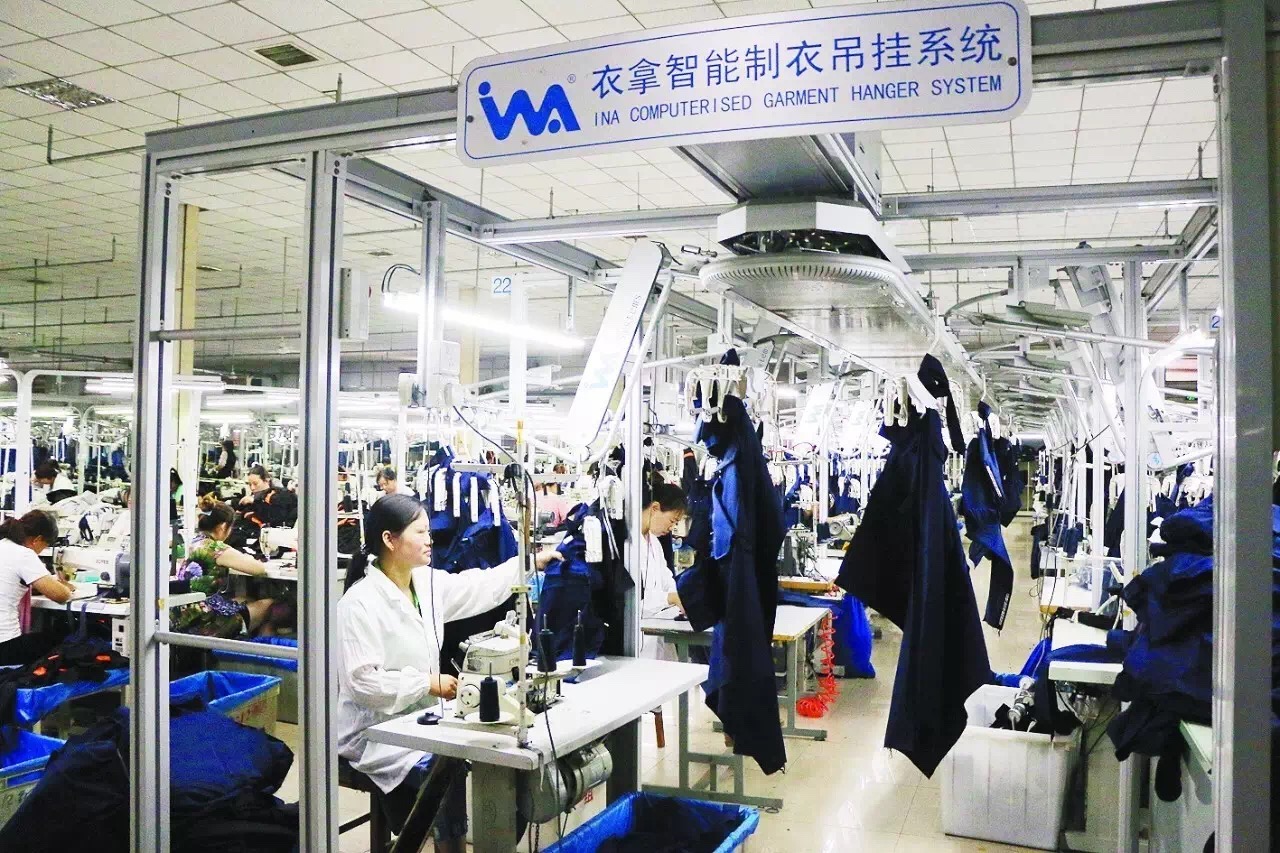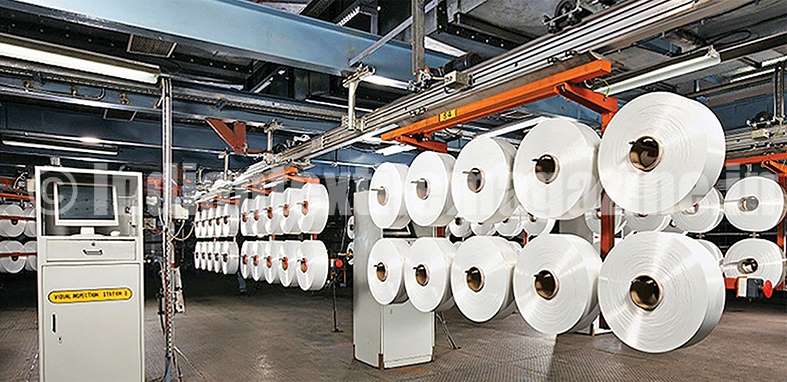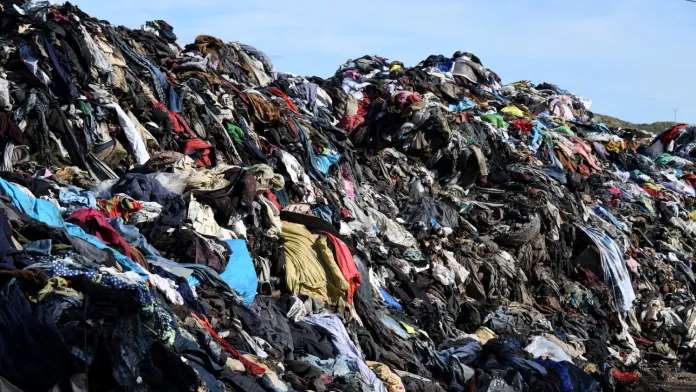FW
First major trade show to resume in China after easing of the COVID-19 restrictions, Intertextile Shanghai will cater to the booming domestic market this year.
To be held from March 06-08, 2024 in Shanghai, the trade show will host over 3,000 companies showcasing fabrics, yarns and accessories.
The trade show will showcase a wide range of innovative and sustainable textile products. It will boast of a strong presence of Chinese and Asian exhibitors. The show will exhibit diverse offerings from various segments including denim, accessories, functional fabrics, premium wool and European expertise.
Exhibitors at the show will include Eastman from the US, Erteks from Turkey, Fidlock from Germany, Grassim from India, Liberty Fabric from the UK, and Yifang Textile from Hong Kong.
The event will have a pavilion dedicated to Oeko-tex-certified fabric. The All About Sustainability section will feature a selection of 25 suppliers.
Intertextile's other sections will include Beyond Denim, focusing on the jeans market, the Accessories Zone, for suppliers of components like zips and buttons, the Functional Lab, showcasing performance fabrics for sport and outerwear, and the Premium Wool Zone, where exhibitors from the UK, France and Italy will present high-end wool and cashmere.
The SalonEurope section too will focus on European fabric expertise, presenting premium materials from France, Italy and Turkey. Finally, the Verve for Design section will host local, European and Australian companies active in textile design.
The trade show will adopt a visa-free entry policy for select European countries to attract international buyers.
The Accelerating Circularity Project has launched its next phase to develop textile-to-textile recycling.
So far, the project has successfully replaced virgin fibers in yarns and fabrics with a minimum of 40 per cent recycled cotton or polyester at standard industry minimum order quantities.
Titled ‘Building Circular Systems, the second phase of the project aims to build on this by significantly increasing material volumes, developing new tools and expanding circularity education.
The project has started T2T (textile-to-textile) trials with over 70 participants across Europe and the US. However, it aims to include more collaborations with additional partners across a wider geographic scope.
Participants will be able to witness the capabilities and challenges of circular systems; collectively build the tools needed to commercialise T2T at scale; connect with peers; and better meet their own sustainability goals, says ACP.
Karla Magruder, Founder and President, says, this milestone marks a major step forward in ACP’s efforts to build commercial circular textile-to-textile systems, provide industry tools and deliver on education and knowledge allowing companies to transfer learnings to their sourcing strategies.
After a challenging year, Cambodia's garment, footwear, and travel goods (GFT) exports surged by 21.64 per cent to $967 million in January. This positive turnaround brings cheer to an industry that employs nearly a million Cambodians and contributes significantly to the nation's economy.
All sectors within GFT saw impressive growth, led by knitted apparel and clothing accessories exports that grew by 24.3 per cent and non-knitted apparel exports that surged by 30.9 per cent, Exports of footwear and travel goods also grew highlighting a broad-based recovery.
This achievement comes despite ongoing trade challenges like the loss of GSP benefits from the US and reduced EBA benefits from the EU. This demonstrates the resilience of the Cambodian industry and its ability to adapt.
The GFT sector is a vital source of employment and economic growth for Cambodia. The recent export surge offers hope for stemming job losses and factory closures that were seen in the past year. The government's support through initiatives like the $40 monthly allowance for affected workers is also commendable.
However, Cambodia faces stiff competition from regional players like Bangladesh. To remain competitive, continuous skill development for workers and cost-effective measures like promoting renewable energy are crucial.
With suppliers receiving a lot of inquiries from international buyers, garment exports from Bangladesh are likely to witness a strong rebound from May this year
As per data from the Export Promotion Bureau, garment exports from Bangladesh grew by 3.45 per cent Y-o-Y to $28.36 billion during the July-January period of 2023-24.
Retailers are coming off a successful holiday season, says Matthew Shay, President and CEO, National Retail Federation (NRF), the largest retail trade association in the US. Sales are expected to grow by 3 per cent to 4 per cent, reflecting a more sustainable rate of growth than seen during the pandemic-hit years, he adds.
Exports may revive to certain extent in May as inquiries from international retailers and brands are increasing, says Md Fazlul Hoque, Managing Director, Plummy Fashions. However, this growth may not be significant, he adds.
Anwar-ul Alam Chowdhury, Former President, BGMEA, notes, the rise in inquiries from retailers and brands may lead to a surge in work orders around April or May leading to a an increase in exports to the previous levels.
Shafiur Rahman, Regional Operations Manager, G-Star, opines, revival may start from June as per projections by international retailers and brands.
According to exporters, garment exports could increase in the coming months due to fall in inflation in the West leading to an increased spending by buyers.
Moreover, buyers are sending a lot of inquiries to buy goods from Bangladesh, affirms Hassan. Since the stock of clothing items has reduced, retailers and brands are placing a lot of work orders, he adds.
Buyers’ confidence in the industry has also increased due to various improvements made by suppliers in terms of compliance and green initiatives, Hassan adds.
The All Pakistan Textile Mills Association (APTMA) has issued a strict warning to the government, stating that over half of the country's textile and apparel firms face imminent closure unless immediate action is taken.
APTMA blamed high energy costs, averaging twice those of competitors, for eroding Pakistan's international competitiveness. Electricity prices in the country stand at 16.7 cents/kWh, while gas prices are set to increase further. The association expressed concerns over the high inflation, weak external sector performance, and stagnant foreign exchange earnings that are creating an unsustainable economic environment impacting employment, poverty, and government finances.
Further, APTMA argued, declining industrial power consumption has increased power tariffs for all, creating a vicious cycle of declining demand and rising costs.
The association sought a meeting with the finance minister to discuss the industry's critical situation and its potential consequences for the entire economy...It further urged the government to implement urgent corrective measures to address the energy crisis and improve the overall economic environment.
In 2023, US’ total apparel imports plummeted by 22 per cent to reach $77.8 billion. However, European producers bucked the trend, with imports from the EU growing by 2.4 per cent to $3 billion.
US’ imports from Italy and France surged by 3.5 per cent and 10.8 per cent respectively as demand for luxury goods increased. However, imports from the UK remained stable.
While US apparel imports from all other regions declined, the EU held steady compared to 2022. This positive trend for European exports can be attributed to several factors. Western and US brands overestimated the post-pandemic recovery, leading to excessive inventory buildup in 2022. This resulted in reduced demand for new orders in 2023, a trend mirrored in EU sourcing.
Despite the global slowdown, European producers maintained their US market share due to several factors, including a strong brand reputation, proximity and agility and product differentiation.
Overall, the 2023 US apparel import data presents a mixed picture. While the global market witnessed a significant decline, European producers emerged as winners, highlighting the importance of brand image, agility, and product differentiation in the competitive landscape.
Kenyan textile manufacturers have raised concerns over a government proposal to allow duty-free fabric imports. They fear, this move could cripple the industry's recent growth, fueled by government investment in cotton farms, processing facilities, and manufacturers.
Governors from 24 cotton-producing regions, like Gladys Wanga and Paul Otuoma, warned of job losses for farmers and textile workers due to a decrease in demand.
Governor Wanga emphasised the contradiction with the ‘Buy Kenya, Build Kenya’ initiative and the potential to erase progress made in empowering farmers.
Governor Otuoma highlighted farmers' commitment to supply raw materials but need government support in education and best practices.
Local textile manufacturer, Thika Cloth Mills opines, this move could lead to potential job cuts as dependence on foreign imports would increase. It would also affect local production, warns Tejal Dodhia, Managing Director.
Similarly, Rivatex, the state-owned factory nearing completion could face challenges, says Thomas Kipkurgat, Managing Director, He urged stakeholders and farmers to join their upstream supply chain
Under the ‘Buy Kenya, Build Kenya,’ initiative, the Kenyan government has invested $1.6 million to revitalise the textile sector, including Rivatex It further plans to double cotton production and increase prices to incentivise farmers. Government agencies have also committed to sourcing garments from local firms.
In a bid to empower textile manufacturers with the knowledge of Competition Law and ensure fair trade practices, the Southern India Mills’ Association (SIMA) organized an awareness program titled "Competition in Textile Market" on February 12, 2024. This initiative aimed to shed light on the pivotal role of the Competition Commission of India (CCI) in maintaining a level playing field within the industrial sector.
Addressing around 50 participants predominantly from Coimbatore, Tiruppur, Erode, Namakkal, and other regions, V. Sriraj, Joint Director (Law) at the Southern Regional Office of CCI, Chennai, elucidated the Commission's mission to eradicate unfair trade practices. He emphasized the CCI's function as an expert body tasked with eliminating anti-competitive agreements, abusive dominance, bid rigging, and other malpractices detrimental to fair competition.
Sriraj underscored the Competition Act of 2002, which prohibits and penalizes unfair conduct by dominant players, safeguarding consumers' interests. He warned against the formation of cartels among manufacturers, particularly when such actions adversely impact consumers through pricing strategies. Additionally, he highlighted the CCI's vigilance over business combinations aimed at unfairly increasing profits.
S.K. Sundararaman, Chairman of SIMA, lauded the program's role in educating textile industrialists about the scope and significance of Competition Law. This advocacy endeavor aimed to foster a business ecosystem characterized by fair competition, ultimately benefitting both consumers and sellers. Through collaborative efforts like these, the CCI strives to promote transparency, accountability, and fair competition, thereby fostering a conducive environment for sustainable growth in the textile industry.
Globe Textiles India Limited (GTIL), a prominent figure in the textile sector known for its wide array of products, including Denim jeans, Shirting fabrics, and cotton printed fabrics, has unveiled plans to acquire Globe Denwash Private Limited. This move, aimed at purchasing shares, signifies GTIL's strategic expansion and commitment to sustainability.
Funding for the acquisition will be sourced through a proposed rights issue, a testament to GTIL's dedication to environmental responsibility and customer satisfaction. The company's focus on utilizing approved nature-friendly dyes and chemicals, coupled with sustainable processing techniques like its Zero Liquid Discharge system, highlights its efforts to minimize environmental impact while enhancing product quality.
Bhavin Parikh, Chief Executive Officer at GTIL, emphasized the significance of the acquisition, stating that it will bolster asset base, margins, and top-line growth, while introducing innovative sustainable fashion garments sought after by customers worldwide. Projections estimate a substantial increase in revenue, reaching 520 crores, and improved margins by 2027-28.
In addition to the acquisition, GTIL recently announced a rights issue of up to Rs 49 crores, demonstrating its proactive approach to financing strategic initiatives. This move follows the approval of an increase in authorized share capital and alteration of the capital clause in the memorandum of association during an Extra-ordinary General Meeting.
With a revenue of Rs 399.4 crores in 2023 and robust financial performance over the years, GTIL is poised for further growth. The acquisition will enhance production capabilities with state-of-the-art facilities and technology, including highly automated industrial washing tumblers and garment processing capacity, contributing significantly to GTIL's operations.
Moreover, the acquisition will pave the way for certifications such as Zero Liquid Discharge Facility by ATIRA and ZDHC, underscoring GTIL's commitment to environmental stewardship. This strategic move not only solidifies GTIL's position in the industry but also sets a precedent for sustainable growth and innovation.
VF Corporation has announced the appointment of Caroline Brown to its Board of Directors, effective February 14, 2024. This move comes after engaging with shareholders, including Engaged Capital, LLC, demonstrating VF's commitment to responsive governance. Additionally, VF plans to appoint another independent director, mutually agreed upon with Engaged Capital, emphasizing inclusivity in board selection.
Brown brings over 30 years of expertise in the global apparel and fashion industry to the table. Her notable roles include Managing Director at Closed Loop Partners, where she spearheaded the firm's fashion practice, and serving as CEO of Donna Karan International (DKI) and DKNY. Her leadership at DKI saw a significant transformation, including brand modernization and overseeing the transition of ownership.
Her extensive career also encompasses leadership positions at Carolina Herrera, Akris, Inc., and Giorgio Armani, showcasing a comprehensive understanding of the sector. Brown's board experience extends to innovative fashion companies like EILEEN FISHER, underscoring her industry influence.
Richard Carucci, VF Board Chair, expressed excitement over Brown's appointment, highlighting her proven ability to revitalize global brands. Brown, in turn, expressed eagerness to contribute to VF's growth trajectory, citing the potential of VF's brand portfolio.
This appointment aligns with VF's ongoing board refreshment strategy, reflecting the company's adaptability to industry dynamics. The collaborative approach with Engaged Capital underscores VF's commitment to shareholder engagement and performance enhancement.
Glenn W. Welling, Founder and CIO of Engaged Capital, praised Brown's addition to the board, anticipating her valuable contributions. The cooperative efforts between VF's leadership, the board, and shareholders signal a unified approach towards achieving sustained growth and brand excellence under the stewardship of CEO Bracken Darrell.












